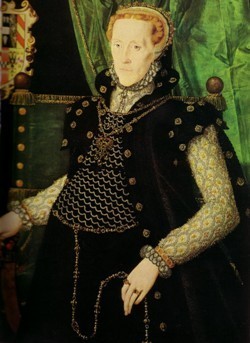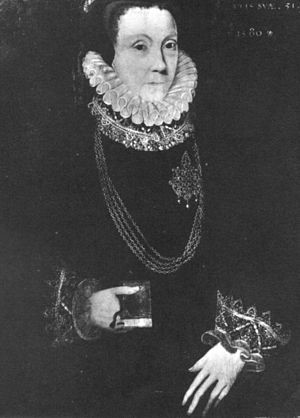William Cecil: Life Story
Elizabeth I’s Chief Councillor
Chapter 2 : Councillor in Training
According to Cecil’s later reminiscences, he was a member of the Parliament that sat between 16 January 1542 and 28 th March 1544, although there is no record of which constituency he represented, nor whether he sat for the whole period or came in on a by-election.
This was the Parliament that passed the Third Act of Succession. This Act laid down the order of succession after Henry VIII’s son, Edward, and any child he might have by Katherine Parr, if neither Edward nor such additional children had legitimate heirs. In that case, the Crown was to be inherited by Henry’s elder daughter Mary, and her heirs, then, if she had none, his younger daughter, Elizabeth and her heirs. It also permitted Henry to name, by his will, heirs to follow on from Elizabeth if she had no children. The Act designated as treason any attempt to subvert this arrangement.
During his time in Cambridge, Cecil had become acquainted with John Cheke’s sister, Mary, whom he married in August 1541. Her mother, Agnes, was a widow and an established vintner and property owner in Cambridge. She was not, however, of the gentry class, and for this reason (or perhaps the very prompt arrival of their son, Thomas) Cecil’s father did not approve of the match.
It was unusual for a man of Cecil’s class to marry without parental consent, so we might infer that it was a love match, perhaps precipitated by pregnancy. By the end of May 1543, Mary, back in Cambridge, had died, and been buried at her mother’s, rather than her husband’s expense. For the time being, little Thomas Cecil stayed with Agnes Cheke.

Freed from his hasty marriage (there is no evidence about how he reacted to Mary’s death), Cecil was able to make a far more advantageous match. His second wife, whom he married on 21 st December 1545, was Mildred Cooke, daughter of the courtier, Anthony Cooke.
The marriage was probably arranged by Cecil’s father who would have known Cooke, since the latter was one of the King’s ‘spears’ or bodyguards. Cooke was an exceptionally learned man, and was at the forefront of promoting intellectual education for women. His five daughters, Anne, Mildred, Elizabeth, Margaret and Katherine learnt Greek and Latin and both Anne and Mildred became known for their scholarship. Given Cecil’s intellectual interests, it seems likely to have been a match to suit both parties. This marriage drew Cecil further into the circle of Reformers and scholars whose influence in the last years of Henry VIII was growing.

This group included illustrious figures – Queen Katherine Parr, Katherine Willoughby, Dowager Duchess of Suffolk, and Edward Seymour, Earl of Hertford, the King’s brother-in-law, all became known to Cecil, and the Duchess of Suffolk remained a lifelong friend. The relationship with Hertford was particularly important as he was likely to be of some importance during the reign of Henry's successor: a time that could not be long in coming. Henry’s health was declining as his weight ballooned.


